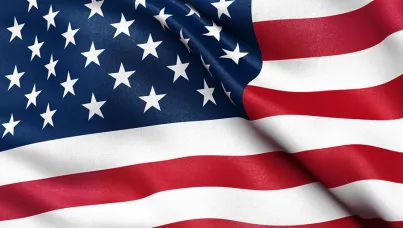A 90% Favorability Rating for Martin Luther King Jr. on His 90th Birthday
To mark Martin Luther King Jr. Day, Ipsos explored attitudes of Americans toward Dr. King as well as a multitude of other public figures, many of them prominent African American leaders, and social movements. Of 18 figures and organizations associated with the struggle for equal rights and treatment (and some of its foes), Martin Luther King Jr. is the one with the highest level of favorability: 90% among all U.S. adults, including 98% among African Americans and 87% among non-Hispanic whites.
Three in four Americans (76%) say the tone of Martin Luther King Jr.’s message about equal rights for blacks was just about right for that time of history while 6% say it was too forceful and 11% not forceful enough. However, among African Americans, a larger proportion (24%) say it was not forceful enough.
Closely following King in popularity is Rosa Parks with 88% of Americans viewing her favorably. Among sports figures, Muhammad Ali (77%) has the highest favorability rating, surpassing Jesse Owens (57%) and Colin Kaepernick (41%). Other widely popular figures include Harriet Tubman (78%), Nelson Mandela (77%), Maya Angelou (66%), Frederick Douglass (58%), and Thurgood Marshall (58%).
Among all the public figures asked about in the survey, King shows the lowest difference between his favorability rating among blacks and among whites (11 points). In contrast, eight figures and organizations have favorability ratings that are at least 40 percentage-points higher among black respondents than among whites: the Black Panther Party (56 points), W.E.B. Du Bois (52), Al Sharpton (51), Malcolm X (49), Colin Kaepernick (49), Jesse Jackson (44), Ida B. Wells (42), and Frederick Douglass (41). In some cases, the difference is largely due to low levels of familiarity among whites: 73% of whites do not know Wells, 69% Du Bois, and 44% Douglass. However, for several other black figures and organizations, the gap is due to the fact that white respondents view them unfavorably. This is particularly the case for the Black Panthers (55% unfavorable among whites), Sharpton (53%), and Kaepernick (44%).
Among the social movements tested, The Civil Rights Movement of the 1960s shows the highest proportion of Americans saying it has made the country better (70%). Only 8% say it has made things worse, 14% say it has made no difference and 8% are not sure. Positive perceptions of the Civil Rights Movement are shared equally by whites and blacks (72% each).
In contrast, the Black Lives Matter movement is highly polarizing, with 39% of all U.S. adults surveyed saying it has made things better vs. 31% saying it has made things worse. Views on Black Lives Matter differ highly by race: 58% of black respondents say it has made things better, compared to 30% of whites. Opinions about Black Lives Matter also vary greatly by age, with adults age 18-34 overwhelmingly positive (54% better vs. 22% worse), compared to those over 55 who feel more negative (30% better vs. 36% worse).
Other movements most widely seen as having made the country better are the LGBTQ equal rights movement (46% vs. 23% worse), the #MeToo movement (45% vs. 22%), and the Labor Movement (42% vs. 11%). Similar to Black Lives Matter, several movements studied are highly polarizing. Two of them have a slightly net-positive balance: the Anti-Vietnam War movement (31% better vs. 21% worse) and the Never Again/Anti-Gun Violence movement (30% vs. 24%). Public opinion is equally divided on Occupy Wall Street (19% better vs. 19% worse) and net-negative on the Tea Party movement (23% better vs. 30% worse)



